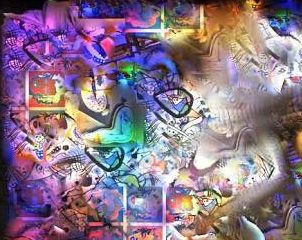Bu çalışmada, bedenin tüketim temelinde yeniden inşası ele alınmakta ve bedene postmodern dönem nasıl yaklaşmakta ve bedeni nasıl inşa etmektedir? Soruları tartışılmaktadır. Postmodern dönemde gençlik ve güzellik yalnızca bir ideal olarak kalmamakta, beden, pek çok kurum ve pratik yoluyla erişilebilir, değiştirilebilir, hükmedilebilir bir hedef olarak görülmektedir. Püritanizmden sonra fiziksel ve cinsel özgürleşme biçimi altında bedenin, “yeniden keşfi” telkin edilmektedir. Postmodern dönemle birlikte bedenin yeniden inşası önceki dönemlerden bir farklılaşmayı beraberinde getirmektedir. Bedenin yeniden inşası sürecinin boyutları, bedenin bir çalışma/hareket alanı olması, bir toplumsal sorumluluk olarak “form” süreci, keşif ve özgürleşmenin cinselliğe altyapı hazırlaması sürecidir.
Anahtar Kelimeler — Modernizm, Püritanizm, Postmodernizm, Postmodern Etik, Form, Cinsellik
Atıf — Özbolat, A. (2011). Postmodern Dönemde Bedenin Tüketim Temelinde Yeniden İnşası, e-Elektronik Sosyal Bilimler Dergisi (elektronik), Güz 2011, Cilt 10, Sayı 38, 317-334
Makaleyi İndirRebuilding of the Body on the Basis of Consumption in Postmodernism
In this study, rebuilding of the body is dealt with on the basis of consumption in postmodernism focusing on the question: In what way does postmodernism approach and build the body? In postmodernism, youth and beauty remains not only an ideal but also the body is seen as a goal which can be reached, altered and controlled. After puritanism, the “rediscovery” of the body is suggested in a way of physical and sexual freedom. Rebuilding of the body in postmodernism brings about a differentiation from previous periods. Dimensions of rebuilding of body are the body as being a working/activity area, a “formation” process of social responsibility, and the process in which discovery and freedom form bases the for sexuality.
Keywords — Modernism, Puritanism, Postmodernism, Consumption Culture, Postmodern Ethic, Form, Sexuality
Citation — Özbolat, A. (2011). Rebuilding of the Body on the Basis of Consumption in Postmodernism, Electronic Journal of Social Sciences (electronic), Autumn 2011, Vol. 10, Issue 38, 317-334
Download Article

